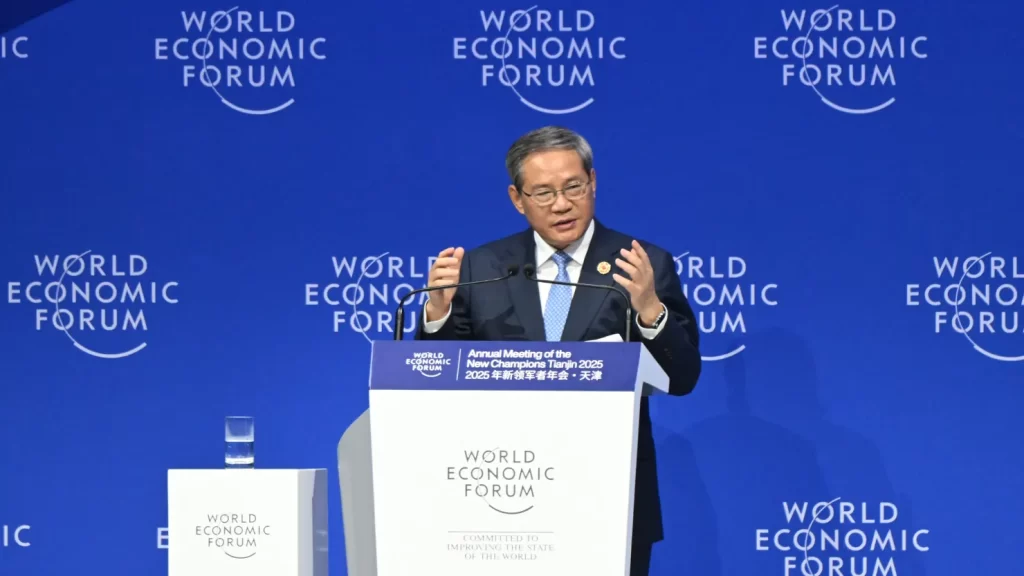China’s Li Qiang Urges Cooperation on Trade, Warns Against Politicizing Global Commerce
Key Points:
- Chinese Premier Li Qiang addressed the World Economic Forum’s Annual Meeting of the New Champions (AMNC25) in Tianjin on June 25, 2025.
- He emphasized that globalization is irreversible and warned against turning trade into a political or security issue.
- Li also shared an optimistic outlook on China’s economic prospects, highlighting efforts to boost domestic consumption alongside manufacturing.
TIANJIN, China — Chinese Premier Li Qiang on Wednesday called for stronger international cooperation on trade, despite rising protectionist measures and geopolitical tensions. Speaking at the World Economic Forum’s annual “Summer Davos” gathering in Tianjin, Li stressed that economic engagement remains essential for shaping the future global order.
“Globalization will not be reversed,” Li stated through an official English translation. He urged global stakeholders to avoid politicizing trade or framing it as a security matter, arguing instead for collaboration and adherence to what he called the “right path.”
Participation in the global economy, he noted, is a constructive way of “reshaping the rules and order.” Li’s remarks were seen as an implicit response to growing economic nationalism and ongoing tensions surrounding tariffs and export controls, though he refrained from directly referencing the U.S. or conflicts such as Israel-Iran.
Commenting on Li’s address, Columbia University history professor Adam Tooze described the idea of reshaping global order as “very interesting,” suggesting the future would involve a “pluralization” of influence rather than dominance by a single actor. “What’s needed now,” he said in an interview with F.M.I.E., “is a focus on global processes over who dictates the rules.”
Li also pointed to a recent diplomatic milestone — the signing of the Convention on the Establishment of the International Organization for Mediation by over 30 nations in Hong Kong — as a showcase of what he described as “Eastern wisdom” in resolving international disputes.
On the domestic front, Li maintained a confident tone about the Chinese economy. He said authorities are working on initiatives to transform China into a “mega-sized consumption powerhouse,” complementing its existing manufacturing strength.
According to F.M.I.E., Louise Loo, lead economist for China at Oxford Economics, remarked that Li appeared “quite confident in the organic growth momentum within China.” While she acknowledged that China still faces economic challenges in 2025, she noted, “It’s not as far-fetched as we thought before.”
Loo added that despite increased tariffs, China remains deeply embedded in global supply chains. “It’s quite hard to decouple China in the near term,” she said, noting that export competitiveness will likely continue to support Chinese economic growth.
This year’s forum saw participation from notable global leaders, including Singapore’s Prime Minister Lawrence Wong, Vietnam’s Prime Minister Pham Minh Chinh, and Ecuadorian President Daniel Noboa Azín. High-profile business figures such as JD.com founder Liu Qiangdong and TCL chairman Li Dongsheng were also in attendance.
According to Chinese state media, Premier Li has recently held meetings with leaders from Singapore, Vietnam, New Zealand, Ecuador, and Kyrgyzstan, further emphasizing China’s ongoing diplomatic engagement in the region.
— F.M.I.E. News Desk

